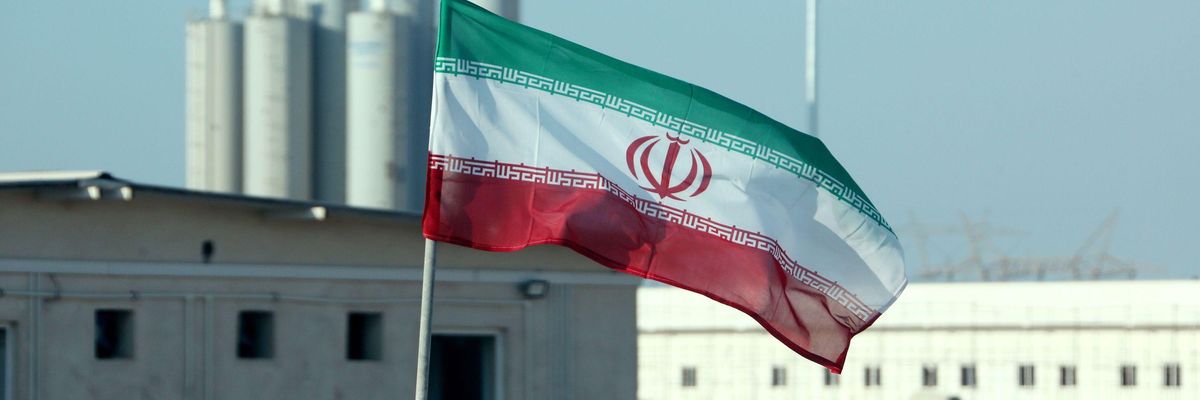Progressive Middle East watchers on Wednesday condemned the Biden administration's targeting of 15 firms and people in at least five countries allegedly linked to the sale and shipment of Iranian petroleum products in violation of U.S. economic sanctions.
"All of this could have been avoided if Biden just returned to the JCPOA via executive order."
In announcing the new sanctions, the U.S. Treasury Department cites an executive order signed in 2018 by then-President Donald Trump as the basis for penalizing petrochemical companies and individuals based in Iran, China, Singapore, the United Arab Emirates, and Vietnam.
Meanwhile, the State Department said in a statement that "the United States has been sincere and steadfast in pursuing a path of meaningful diplomacy to achieve a mutual return to full implementation of the Joint Comprehensive Plan of Action (JCPOA)," commonly called the Iran nuclear deal.
"It is Iran that has, to date, failed to demonstrate a similar commitment to that path," the statement contended, echoing U.S. Secretary of State Antony Blinken's suggestion that Iran, not the U.S.--which reneged on the agreement under Trump--is to blame for challenges hampering the latest efforts to revive the JCPOA.
Assal Rad, research director at the National Iranian American Council (NIAC), pushed back against an attempt by Blinken to blame Iran for the JCPOA impasse.
"The U.S. pulled out of the JCPOA under Trump and rather than acknowledge this and seriously pursue diplomacy, the Biden administration has forced Iran to choose between unreasonable concessions or more sanctions which kill the Iranian people," the peace group CodePink tweeted. "It's really that simple."
Middle East policy expert Sina Toossi tweeted that it was the U.S., not Iran, that needs to show its willingness to revive the nuclear deal.
"The Biden administration's 'commitment' to returning to the JCPOA can only be demonstrated by taking serious steps to rebuild trust and bring the U.S. back into compliance, not by doubling down on Trump's failed and self-defeating policies," he said.
Trita Parsi, executive director of the Quincy Institute for Responsible Statecraft, lamented that President Joe Biden "is continuing and embracing Trump's max pressure policy, while expecting a different result."
"All of this could have been avoided if Biden just returned to the JCPOA via executive order, as he did with Paris and the WHO," he added, referring to the U.S. rejoining the Paris climate agreement and World Health Organization after Trump-era disengagement.
The new sanctions come ahead of Biden's Middle East trip next week, which will include stops in Israel and Saudi Arabia, two erstwhile foes increasingly united by their common enemy, Iran.
As Paul Pillar of Georgetown University's Center for Security Studies noted Tuesday, the upcoming trip also comes amid "increasing talk about the United States getting more deeply committed to anti-Iran security arrangements on the side of Arab states of the Persian Gulf, especially Saudi Arabia and Israel."
NIAC policy director Ryan Costello last week accused the Biden administration of eschewing JCPOA revival in favor of "planning to bend the knee to [Saudi Crown Prince] Mohammed bin Salman in an apparent attempt to lower oil prices."
"A restored Iran deal can do far more to lower global oil prices, and it would have tangible benefits for U.S. security by removing the twin threats of a nuclear-armed Iran and a devastating war over Iran's nuclear program," Costello asserted. "It's not too late for Biden to make the right call."

